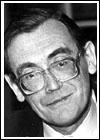1606 - 1673 Person Name: Michael Schirmer, 1606-1673 Topics: Invocation; Invocation Author of "O Holy Spirit, Enter In" in Evangelical Lutheran Worship Schirmer, Michael, son of Michael Schirmer, inspector of wine casks at Leipzig, was born at Leipzig, apparently, in July, 1606, his baptism being entered as on July 18, in the registers of St. Thomas's Church there. He matriculated at the University of Leipzig, at Easter, 1619, and graduated M.A. in 1630. In 1636 he was appointed subrector, and in 1651 conrector of the Greyfriars Gymnasium at Berlin. During his conrectorship the rectorship fell vacant several times, and each time, after he had officiated as prorector during the vacancy, a younger man than he was set over him (probably on account of Schirmer's feeble health) till, last of all, in May, 1668, the sub-rector was promoted over his head. In the same year Schirmer retired from office. The remainder of his life he spent in Berlin, where he published, in the end of 1668, a version of the Aeneid in German Alexandrine verse, wrote various occasional poems, &c. He died at Berlin, apparently on May 4, and was certainly buried there, in the churchyard of the Kloster Kirche, on May 8, 1673….
Schirmer had many domestic and personal afflictions to bear. His wife and his two children predeceased him. The early part of his life in Berlin was spent amid the distress caused by the Thirty Years War, during which Brandenburg, and Berlin itself, suffered greatly from pestilence and poverty. In 1644 a deep melancholy fell upon him, which lasted for five years; and something of the same kind seems to have returned to him for a time, after his wife's death, in Feb. 1667. Schirmer was crowned as a poet in 1637. His earlier productions were mostly occasional pieces in German and Latin. In 1655 he published, at Berlin, a metrical version of Ecclesiasticus as, Das Buch Jesus Sirach, &c.; and in 1660, also at Berlin, a Scriptural play, which was acted by the scholars of the Gymnasium, and was entitled Der verfolgte David, &c. He also published, at Berlin, in 1650, versions of the Songs of the Old and New Testament as, Biblische Lieder und Lehrsprüche. The only compositions by him which have come into use as hymns, are those which he contributed to J. Crüger's Newes vollkömliches Gesang-Buch, Berlin, 1640; and to Crüger's Praxis pietatis melica, Berlin, 1648, &c. These, have in all, passed into many German hymnbooks of the 17th century, and most of them are still in use. They were reprinted by Dr. Bachmann …together with various selections irom his other poetical compositions. They are practical, clear, objective, churchly hymns, somewhat related to those of Gerhardt; and still more closely to those of Johann Heermann, from whom indeed Schirmer borrows a few expressions.
The only hymn by Schirmer which has passed into English is:—
0 heilger Geist, kehr bei uns ein. Whitsuntide. First published, 1640, as above, No. 75, in 7 stanzas of 10 lines, entitled, "Another short hymn for Whitsuntide, M. Michael Schirmers." …
Translated as:—
1. 0 Holy Ghost, desoend, we pray. This is a somewhat free translation of st. i., v., ii., iii., by W. M. Reynolds, as No. 794, in the American Lutheran Gen. Synod's Collection, 1850; and is repeated, with translations of st. iv., vi., vii., added, as No. 103, in the Ohio Lutheran Hymnal, 1880.
2. 0 Holy Spirit, enter in. This is a good translation, omitting st. ii., iv., by Miss Winkworth, in her Chorale Book for England, 1863, No. 70. It was repeated, as No. 249, in the Pennsylvania Luth. Church Book, 1868. In Dr. Thomas's Augustine Hymn Book, 1866, it is Nos. 480, 481; No. 481 beginning, "O mighty Rock, O source of Life," which is the tr. of st. v. [Rev. James Mearns, M.A.]
--Excerpts from John Julian, Dictionary of Hymnology (1907)
Michael Schirmer


 My Starred Hymns
My Starred Hymns






